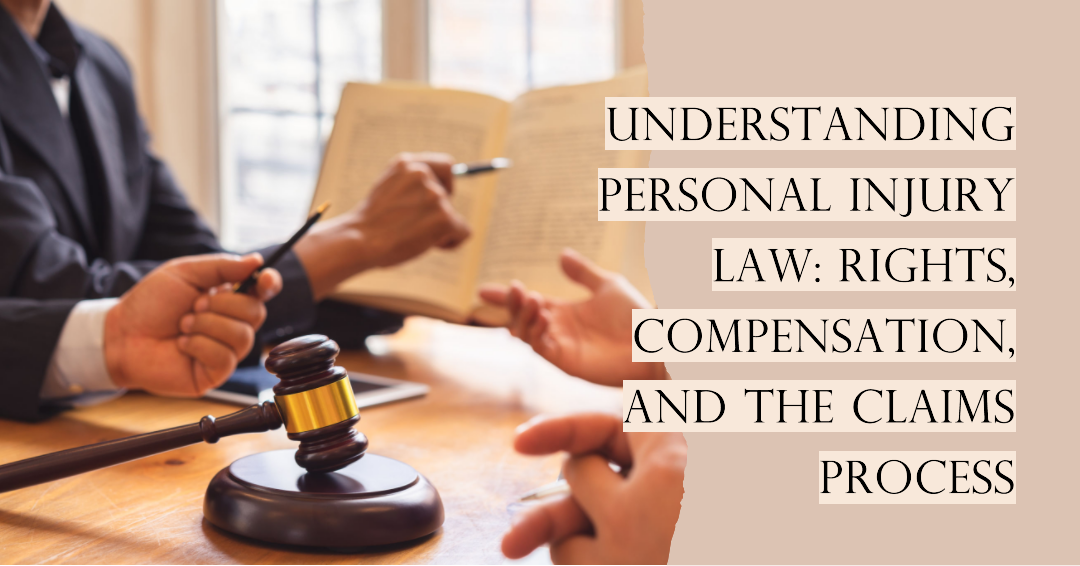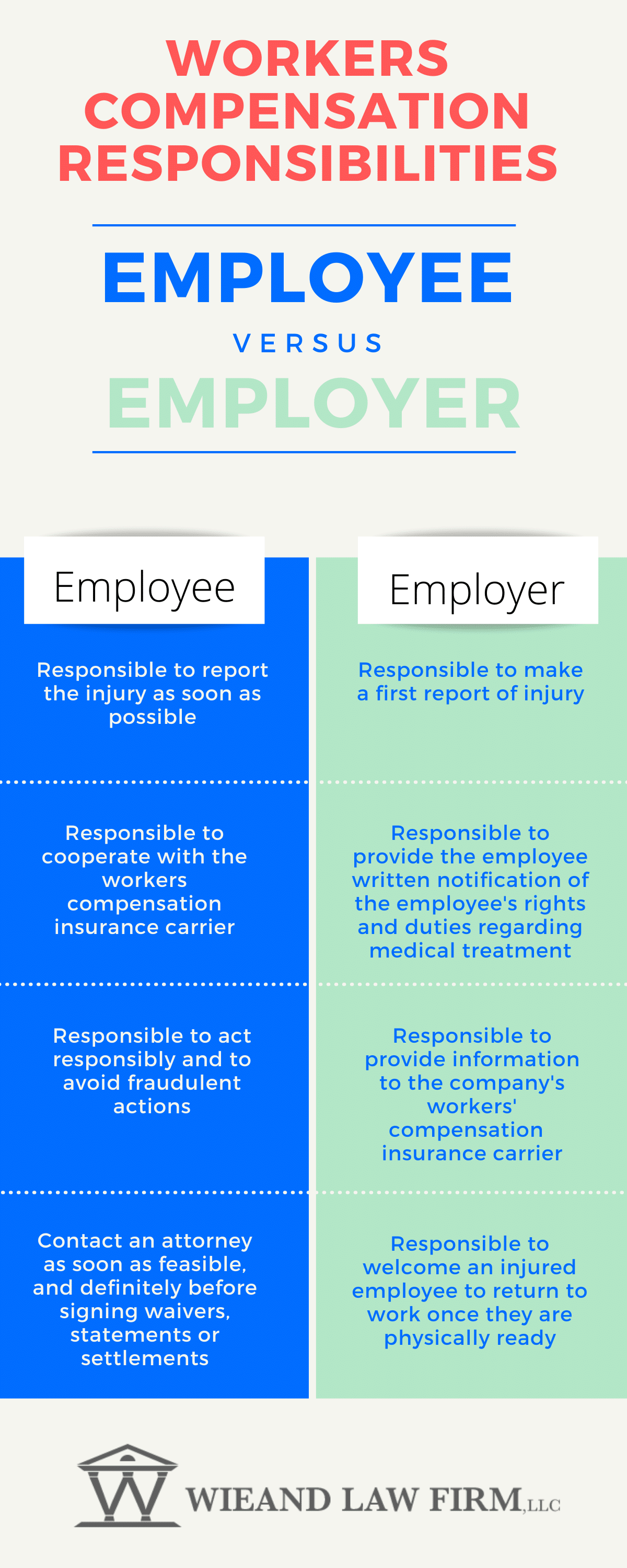Injuries can happen to anyone at any time, and they can have a significant impact on one’s life. From physical pain and mental trauma to financial burden and loss of quality of life, the consequences of an injury can be devastating. In such situations, it is essential to understand your legal rights and seek appropriate compensation for your losses. This guide aims to provide you with a comprehensive understanding of personal injury claims, steps to take after an injury, your legal rights, how compensation is calculated, common mistakes to avoid in personal injury cases, and the role of personal injury attorneys.
Types of Personal Injury Claims

Personal injury refers to physical or psychological harm caused by someone else’s negligence, intentional actions, or strict liability. In legal terms, it falls under the category of tort law, which deals with civil wrongdoings and resulting damages. Personal injury claims can arise from various situations, including slip and fall accidents, car accidents, workplace injuries, medical malpractice, and product defects. Let’s take a closer look at some of the most common types of personal injury claims.
Slip and Fall Accidents
Slip and fall accidents occur when someone slips or trips and falls due to hazardous conditions on someone else’s property. These types of accidents can result in various injuries, such as broken bones, head injuries, and sprains. Property owners are responsible for maintaining safe premises and warning visitors of potential hazards. If they fail to do so, and someone is injured as a result, they may be held liable for the damages.
Car Accidents
Car accidents are one of the leading causes of personal injury claims. Each year, millions of people suffer injuries in car accidents, ranging from minor cuts and bruises to severe spinal cord injuries and traumatic brain injuries. In most cases, these accidents are caused by driver negligence, such as speeding, distracted driving, or driving under the influence of drugs or alcohol. The at-fault driver may be held liable for the damages and injuries caused to the victims.
Workplace Injuries
People spend a significant amount of time at work, and unfortunately, accidents can happen on the job. Workplace injuries can range from minor cuts and bruises to severe injuries that require hospitalization and long-term medical treatment. In most cases, employers are required to provide a safe working environment and take appropriate measures to prevent workplace accidents. If they fail to do so, and an employee is injured as a result, they may be held liable for the damages.
Medical Malpractice
Medical malpractice occurs when a healthcare professional fails to provide the expected standard of care, resulting in harm to the patient. This can include misdiagnosis, surgical errors, medication errors, and birth injuries. Medical malpractice claims can be challenging to prove, as it requires showing that the healthcare provider’s actions deviated from the accepted standard of care and directly caused the injury.
Product Defects
Product defects can also lead to personal injury claims if a defective product causes harm to the user. These defects can be due to design flaws, manufacturing errors, or failure to provide adequate warnings and instructions. The manufacturer, distributor, or seller of the defective product may be held liable for any injuries or damages caused by their product.
Steps to Take After an Injury
If you have suffered an injury due to someone else’s negligence, there are certain steps you should take to protect your legal rights and increase your chances of receiving fair compensation. These steps include:
Seek Medical Attention
The first and most crucial step after an injury is to seek medical attention. Even if you think your injuries are minor, it is essential to get checked by a medical professional. Some injuries may not show symptoms right away, and delaying treatment can worsen your condition and weaken your case.
Report the Incident
If your injury occurred at a business, workplace, or public property, make sure to report the incident to the appropriate authorities. This will create an official record of the incident, which can be used as evidence in your case.
Gather Evidence
Collect as much evidence as possible at the scene of the accident. Take pictures and videos, get contact information from any witnesses, and keep a record of any expenses related to your injury, such as medical bills and lost wages.
Don’t Admit Fault
Avoid apologizing or admitting fault after an injury, even if you think you may have contributed to the accident. These statements can be used against you in court and weaken your case.
Consult with an Attorney
It is always a good idea to consult with a personal injury attorney after an injury. They can review your case, advise you on your legal rights, and help you determine the best course of action.
Understanding Your Legal Rights
As a victim of personal injury, you have certain legal rights that protect you and entitle you to compensation for your losses. These rights include:
The Right to Seek Compensation
The primary right of a personal injury victim is the right to seek compensation for their losses. This can include economic damages, such as medical expenses and lost wages, and non-economic damages, such as pain and suffering and loss of enjoyment of life.
The Right to a Fair Trial
If you are unable to reach a fair settlement with the at-fault party’s insurance company, you have the right to take your case to trial. This allows you to present your case to a judge or jury and seek a verdict that provides fair compensation for your injuries.
The Right to Legal Representation
You have the right to hire a personal injury attorney to represent you in your case. An experienced attorney can protect your rights, gather evidence, negotiate with insurance companies, and advocate for your best interests in court.
The Right to File a Lawsuit
In most personal injury cases, you have a limited amount of time to file a lawsuit against the at-fault party. This is known as the statute of limitations and varies depending on the state and type of case. It is essential to consult with an attorney as soon as possible after an injury to ensure that your case is filed within the appropriate timeframe.
How Compensation is Calculated
The amount of compensation you may receive for your personal injury claim will depend on various factors, including the severity of your injuries, the impact on your life, and the at-fault party’s liability. Here are some of the key factors that can affect how compensation is calculated:
Medical Expenses
Compensation for medical expenses includes any costs related to your injury, such as hospital bills, doctor’s appointments, medication, and physical therapy. In more severe cases, it may also cover the cost of ongoing medical treatment or long-term care.
Lost Wages
If your injury has caused you to miss work, you may be entitled to compensation for lost wages. This can include both past and future lost earnings, as well as reduced earning capacity if your injury has affected your ability to work in the long term.
Pain and Suffering
Pain and suffering refer to the physical and emotional distress you have experienced as a result of your injury. It is difficult to put a dollar amount on this type of damage, but it is typically calculated based on the severity of your injuries and their impact on your daily life.
Property Damage
If your personal property, such as your vehicle, was damaged in the accident, you may be entitled to compensation for repairs or replacement.
Punitive Damages
In some cases, the court may award punitive damages to punish the at-fault party for their actions and deter similar behavior in the future. These damages are only awarded in cases where the at-fault party’s conduct was particularly reckless or malicious.
Common Mistakes to Avoid in Personal Injury Cases

Personal injury cases can be complicated, and making even a small mistake can have a significant impact on your case. Here are some common mistakes you should avoid when pursuing a personal injury claim:
Waiting Too Long to Seek Medical Attention
As mentioned earlier, it is crucial to seek medical attention right away after an injury. Delaying treatment can not only worsen your condition but also weaken your case. Insurance companies may argue that your injuries were not severe enough to require immediate medical attention, and they may use this to dispute your claim.
Not Reporting the Incident
Failing to report the incident to the appropriate authorities can also hurt your case. As mentioned earlier, an official report can serve as valuable evidence in your case. If you fail to report the incident, the other party’s insurance company may argue that the accident never happened or that you are exaggerating your injuries.
Giving a Recorded Statement Without Legal Representation
Insurance adjusters may ask you to give a recorded statement about the accident, which they can use against you later on. It is best to consult with an attorney before giving any statements to ensure that your rights are protected.
Settling Too Quickly
It can be tempting to accept a quick settlement offer from the insurance company, especially if you are facing financial difficulties due to your injuries. However, these offers are often much lower than what you may be entitled to, and accepting them may prevent you from seeking further compensation in the future.
Not Seeking Legal Advice
Navigating a personal injury claim without legal representation can be challenging, especially if you are dealing with physical and emotional trauma. Consulting with an experienced personal injury attorney can help you understand your legal rights, negotiate with insurance companies, and build a strong case for fair compensation.
The Role of Personal Injury Attorneys
The goal of a personal injury attorney is to protect your rights and help you receive fair compensation for your injuries. Here are some of the essential roles they play in personal injury cases:
Legal Advice
A personal injury attorney can provide you with valuable legal advice throughout the entire process. They can explain your rights, answer any questions you may have, and help you make informed decisions about your case.
Case Evaluation
Attorneys have experience dealing with personal injury cases and can evaluate the strength of your case. They can review the evidence and determine how much compensation you may be entitled to based on your injuries and the at-fault party’s liability.
Gathering Evidence
One of the essential tasks of a personal injury attorney is gathering evidence to support your case. This may include gathering medical records, obtaining witness statements, and consulting with experts to prove the extent of your injuries.
Negotiating with Insurance Companies
Insurance companies will often try to settle personal injury claims for as little as possible. An experienced attorney can negotiate with them on your behalf and ensure that you receive fair compensation for your losses.
Representing You in Court
If your case goes to trial, your attorney will represent you in court and present your case to a judge or jury. They will use their knowledge and experience to advocate for your rights and seek a favorable verdict.
Conclusion
Suffering a personal injury can be a traumatic experience, but understanding your legal rights and seeking appropriate compensation can help ease the burden. We hope this guide has provided you with valuable information on different types of personal injury claims, steps to take after an injury, your legal rights, how compensation is calculated, common mistakes to avoid, and the role of personal injury attorneys. If you have been injured due to someone else’s negligence, it is crucial to seek legal advice from a reputable personal injury attorney to protect your rights and receive fair compensation for your losses.

